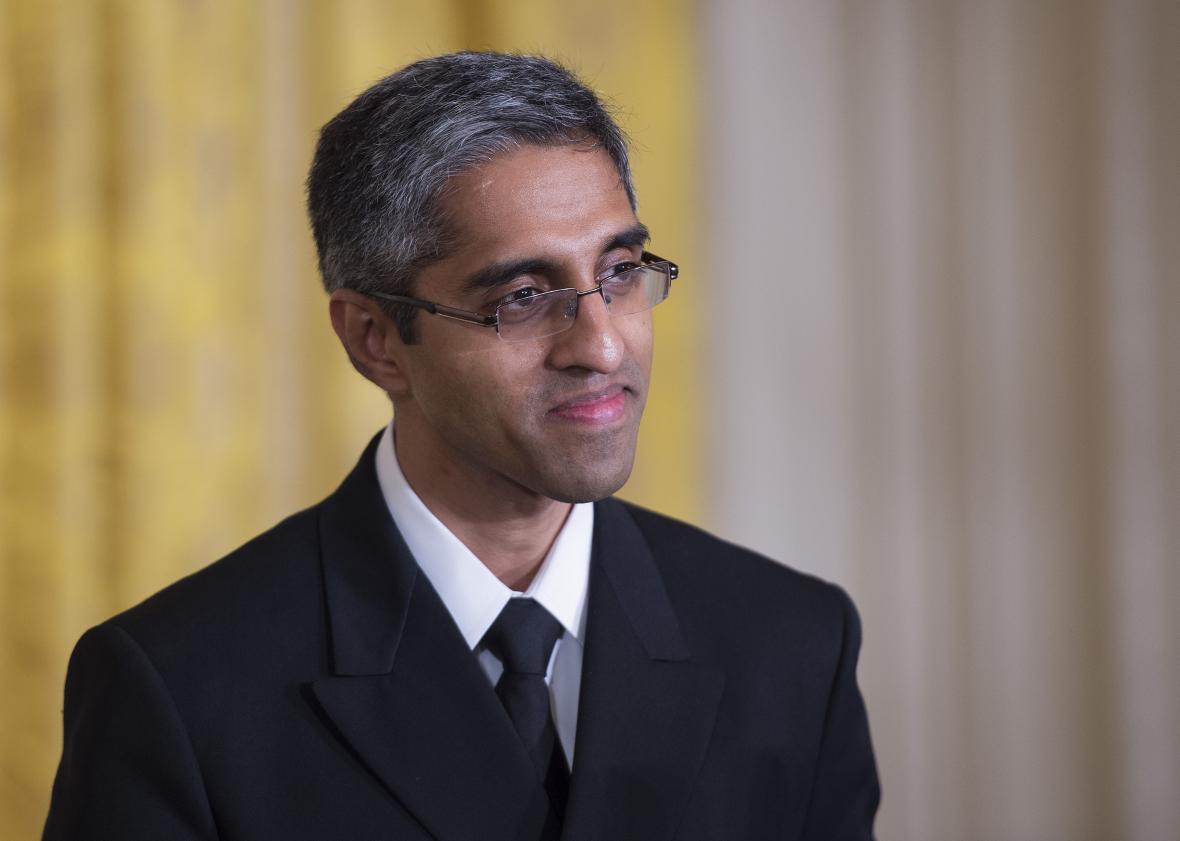President Trump asked Obama-administration–holdover Surgeon General Dr. Vivek Murthy to resign, getting rid of a staunch advocate for the Affordable Care Act who has long called for stronger gun control. He was replaced by his deputy, Rear Adm. Sylvia Trent-Adams, who is now one of the first nurses to serve as surgeon general. The Department of Health and Human Services thanked Murthy for his service and his help on a “smooth transition into the new Trump administration.”
The reasons for the abrupt dismissal weren’t immediately clear, but the New York Times says “employees at the Department of Health and Human Services privately expressed surprise at his sudden departure.” Although it’s not unprecedented, it’s highly unusual for a surgeon general’s four-year term to be cut short. What is known is that the gun lobby was no fan of Murthy, who has for years insisted that gun violence should be classified as a public health threat. In fact, the National Rifle Association called on the Senate not to confirm him in 2014. Murthy also raised warnings against the explosion of e-cigarette use, especially among teenagers.
For now, Murthy is keeping things diplomatic and not commenting on the reasons why he was asked to leave. He posted a statement on Facebook thanking “America for the privilege of a lifetime.” He also outlines four lessons he learned while on the job:
1. Kindness is more than a virtue. It is a source of strength. If we teach our children to be kind and remind each other of the same, we can live from a place of strength, not fear. I have seen this strength manifest every day in the words and actions of people all across our great nation. It is what gives me hope that we can heal during challenging times.
2. We will only be successful in addressing addiction – and other illnesses – when we recognize the humanity within each of us. People are more than their disease. All of us are more than our worst mistakes. We must ensure our nation always reflects a fundamental value: every life matters.
3. Healing happens when we are able to truly talk to and connect with each other. That means listening and understanding. It means assuming good, not the worst. It means pausing before we judge. Building a more connected America will require us to find new ways to talk to each other.
4. The world is locked in a struggle between love and fear. Choose love. Always. It is the world’s oldest medicine. It is what we need to build a nation that is safe and strong for us and our children.
